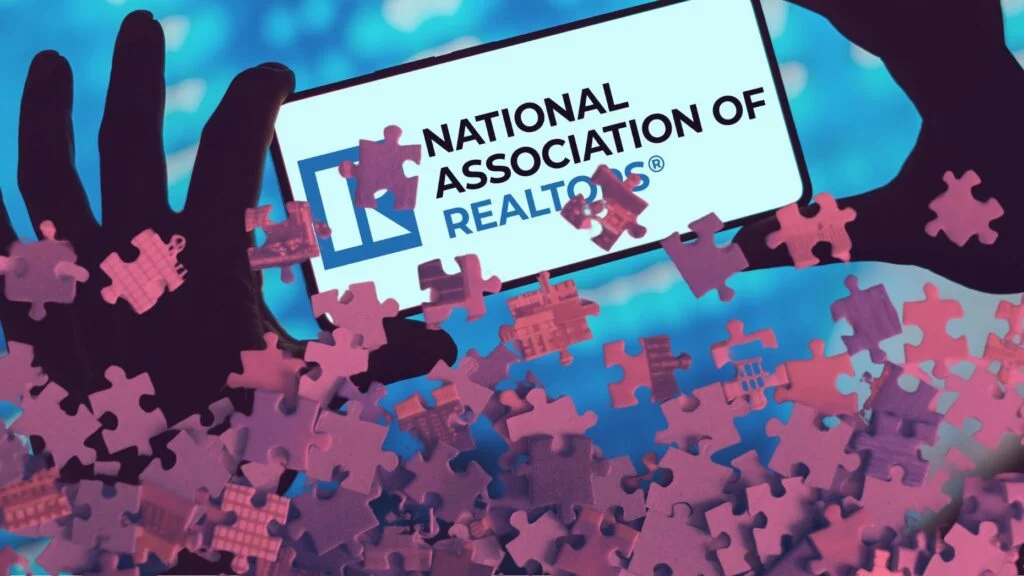Now Reading: NAR’s Bold Move: 5 Key Wins for Realtors Today
-
01
NAR’s Bold Move: 5 Key Wins for Realtors Today
NAR’s Bold Move: 5 Key Wins for Realtors Today

Table of Contents
In a landmark decision, the National Association of Realtors (NAR) ends no-commingling rule, marking a significant shift in how brokerages manage client and operational funds. This rule, which had long prohibited brokers from mixing personal or business funds with client funds, was recently dropped due to evolving industry practices and strong pushback from agents and brokerage firms.
This move by the nation’s largest real estate trade association reflects a modernized approach to financial oversight, technology adoption, and operational flexibility in the real estate industry.
Let’s explore what this rule change means, why it matters, and the five major ways it will affect agents, brokers, and consumers across the U.S.
What is the ‘No-Commingling Rule’?

The no-commingling rule was a strict regulation enforced by NAR, designed to prevent brokers from mixing their personal or business finances with client trust accounts. This measure aimed to protect client funds, prevent fraud, and ensure financial accountability.
Under this rule, brokers had to keep client funds — such as earnest money deposits — in separate escrow accounts. Even a small overlap or accounting error could lead to disciplinary action, license suspension, or legal penalties.
Why did NAR scrap the rule?
The NAR ends no-commingling rule mainly due to two growing realities:
- Modern Banking Systems: Most real estate firms now use advanced accounting software and digital escrow services, which provide more transparency and automatic separation of funds. These systems reduce the risk of misuse or errors.
- Legal Redundancy: Many states already have their own strict regulations around client fund handling. In some cases, NAR’s rule overlapped or conflicted with local laws, creating confusion for brokers trying to stay compliant.
NAR stated that the rule had become “outdated” and “redundant” with current state-level financial practices and emerging technologies in digital transactions.
What are the 5 major changes this repeal brings?
Now that the NAR ends no-commingling rule, here are five powerful changes that real estate professionals and clients can expect:
1. More Flexibility for Brokers
Without the national-level restriction, brokerages now have more flexibility to manage their operations in line with state laws. Brokers can design accounting systems that better match their business models and transaction volumes.
2. Reduction in Compliance Confusion
One of the main frustrations among brokers was navigating conflicting state and NAR guidelines. With this rule removed, the legal landscape becomes clearer. Brokers now need to focus only on their state’s escrow and trust fund requirements.
3. Lower Administrative Costs
Maintaining separate accounts and strict reporting structures required additional staff and systems. The repeal means brokerages can cut down on unnecessary admin expenses — potentially saving thousands of dollars per year.
4. Risk of Misuse if Oversight Weakens
This is the negative side of the change. Some experts warn that removing this rule could open the door for misuse of client funds, especially in firms that lack strong internal controls. NAR has said that brokers must still follow state laws and ethical standards, but concerns remain.
5. Tech-Based Escrow Solutions Will Grow
Digital tools that automate fund separation and reporting — such as virtual escrow platforms and blockchain-based ledgers — are expected to rise in popularity. This change accelerates the industry’s shift toward technology-first compliance solutions.
Industry Reactions to the Decision
The response to the news that NAR ends no-commingling rule has been mixed.
Supporters, especially from large brokerages and proptech companies, say it’s a welcome modernization that recognizes the industry’s maturity and growing reliance on technology.
Critics, particularly from consumer protection groups and smaller agencies, worry that the absence of a national rule may lead to lapses in oversight in states with weaker financial controls.
Some realtors also noted that the timing is interesting — coming at a point when NAR is facing multiple lawsuits and internal scrutiny over its policies and practices. Skeptics believe this might be a move to streamline operations and reduce litigation risk.
What should real estate professionals do now?

Even though NAR ends no-commingling rule, the responsibility for ethical and transparent fund management remains. Here’s what brokers and agents should do:
- Review State Regulations: Make sure you understand the escrow and client fund requirements in your state.
- Upgrade Technology: Invest in software that clearly separates business and client funds automatically.
- Maintain Clear Records: Keep detailed and transparent records of all financial transactions to protect your license and your clients.
- Train Your Team: Ensure every staff member understands how to handle client funds correctly under the new rule framework.
What does this mean for clients?
For buyers and sellers, the end of the no-commingling rule will mostly be invisible — unless something goes wrong. That’s why clients should ask their brokers:
- How are my funds held and protected?
- What systems or processes do you use to track my deposits?
- Who can access the escrow account?
Transparent answers to these questions can help build trust in a post-commingling-rule era.
Final Thoughts
The decision that NAR ends no-commingling rule reflects how rapidly the real estate world is changing. As digital tools, AI, and blockchain continue to transform how real estate deals are done, old policies must evolve too.
While this rule change could mean more efficiency and less red tape, it also puts more responsibility on brokers to operate ethically without a national safety net.
NAR may have dropped the rule — but accountability is still in full force.
Also Read -5 Big Reasons Naver Pay’s Proptech Move Is Game-Changing






















